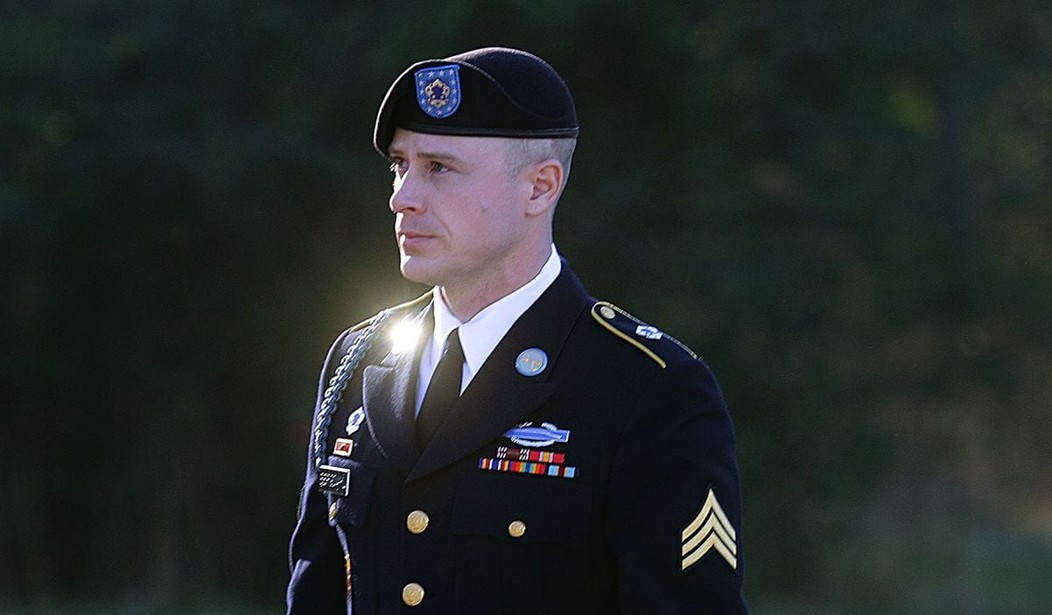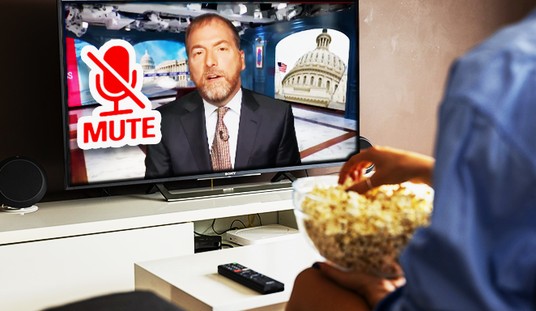“Almost immediately after” Donald Trump was sworn in as president, the New York Times reports that defense counsel for Sgt. Bowe Bergdahl – the deserter for whom former President Barack Obama exchanged five Taliban commanders – asked a court-martial to dismiss charges against him. The motion cites Trump’s denunciation of Bergdahl as a “dirty rotten traitor,” a staple of his campaign rallies – as were Trump gesticulations and sound effects, imagining Bergdahl before a firing squad.
Bergdahl’s lawyer, Eugene Fidell (whom, the Times takes pains to add, “teaches military justice at Yale Law School), contends that the statements violate the prohibition against “unlawful command influence,” which the Gray Lady – that well-known stickler for legal principle – emphasizes is “a bedrock of military justice.” It prohibits commanders from behavior that could prejudice a defendant’s case.
It is a frivolous claim, notwithstanding the gravitas with which the Times imbues it, as it often does Mr. Fidell’s work. Trump was a candidate not a commander when he made the statements in question.
Clearly, Fidell and his note-takers are mindful of this inconvenience. Thus, they endeavor to stretch the command-influence prohibition beyond recognition. It applies, we are told, not only to commanders but to “anyone with the ‘mantle of command authority’” – a term said to be mined from an opinion by a military appeals court. Perhaps … but the “anyone” in question still has to be in the military chain of command at the time the “influence” is exerted.
Out on the campaign trail, Trump did not have the mantle of command influence. He was a civilian seeking to be elected commander-in-chief. No sensible person would have seen him as vested with any military authority. He was not any part of the chain-of-command – not formally, and not by any reasonable perception.
Obviously, Fidell knows this. otherwise, he would not have waited until Trump was sworn in as president to bring the motion. Counsel nonetheless tries to bootstrap Trump’s pre-presidential meanderings to his later commander-in-chief duties because the new president will now have a say over the promotion and assignments of military officers who are responsible for Bergdahl’s court-martial (like Gen. Robert B. Abrams, who ordered Bergdahl to a court-martial). Those officers, according to Fidell’s theory, will be guided not by the law and the evidence but the campaign bombast.
Nonsense. To flout the principle Fidell invokes, there must be an exercise of influence that is both unlawful and related to an existing command relationship. Regardless of what one thinks of Trump’s red-meat campaign riffs, there was nothing unlawful about them. They could only have been deemed “unlawful” if, at the time, he had been in command and thus obliged to protect the integrity of military proceedings. He wasn’t.
It is the flimsiest of speculation that his campaign statements might influence the conduct of Bergdahl’s case. Court’s don’t dismiss charges based on speculation.
For good measure, Fidell also tosses in the inevitable claim that Berghdahl can no longer get a fair trial because Trump’s campaign commentary will prejudice the jury. The “routine requirement of trial procedure” that “jurors avoid publicity about the case” is now “impossible,” according to counsel – as if no juror is ever exposed to publicity about a case, and as if no instruction from the judge could cure such a problem.
The Times may take this seriously, but the rest of us needn’t go along for the ride. If Fidell’s contention were sound, there could never be a trial involving a crime intensely covered by the media – a terrorist attack, a murder, etc. Clearly, that is not so.
Fidell is confusing a precaution with a violation. When judges admonish juries to avoid publicity, that is a safety measure – a means not an end. The ultimate objective is that jurors faithfully perform their duty to decide the case impartially based on the evidence and law presented in court. If they avoid publicity, that helps; but if they are exposed to publicity, that by itself does not mean their impartiality and conscientiousness are tainted – far from it.
It is by no means clear, as Fidell maintains, that it is “impossible” to prevent the military officers who serve as jurors from hearing about Trump’s campaign remarks. Military officers are presumed to follow their superiors’ orders, and jurors are presumed to follow the judge’s instructions; consequently, if they are told to avoid publicity, we must assume they will do so. But even if a juror happened to hear some publicity, the remedy is not dismissal of the case. It is to ensure, by examining the juror, that the juror was not influenced by the publicity and can still decide the case based solely on the evidence presented in court and the judge’s legal instructions.
It is a frequent occurrence for jurors to hear publicity about the cases on which they sit. The vast majority of the time, they assure the court they will not be affected by it. The case goes on, and if there is a conviction the conviction is upheld on appeal.
Claims of unlawful command influence based on political statements are often implausible even when made by politicians who actually do have the “mantle of command authority.” On that score, the Times conveniently fails to mention the aftermath of Bergdahl’s transfer to American custody.
The Obama administration was roundly rebuked once the facts of Bergdahl’s desertion emerged: the facts that he had endangered the lives of American soldiers who had searched for him; had quite possibly given the Taliban information about American tactics; and had been exchanged for experienced, committed Taliban jihadists who were likely to go back to terrorist operations against American troops. Amidst the controversy, Obama national security adviser Susan Rice, speaking for the president, publicly insisted that Sgt. Bergdahl had served his country with “honor and distinction.”
The president’s subordinates in the chain-of-command were clearly unimpressed. In light of the overwhelming evidence against Bergdahl, they charged him with desertion and endangering our troops – manifestly unconcerned that doing so would embarrass the commander-in-chief, or that Obama might take retaliatory actions regarding promotions, assignments, etc.
There is even less reason now to fear that the military will not do its duty. There has been no unlawful command influence. There is no basis to believe Bergdahl will not get a fair trial – and if he does not, any infirmities can be challenged on appeal in the highly likely event he is convicted.









Join the conversation as a VIP Member